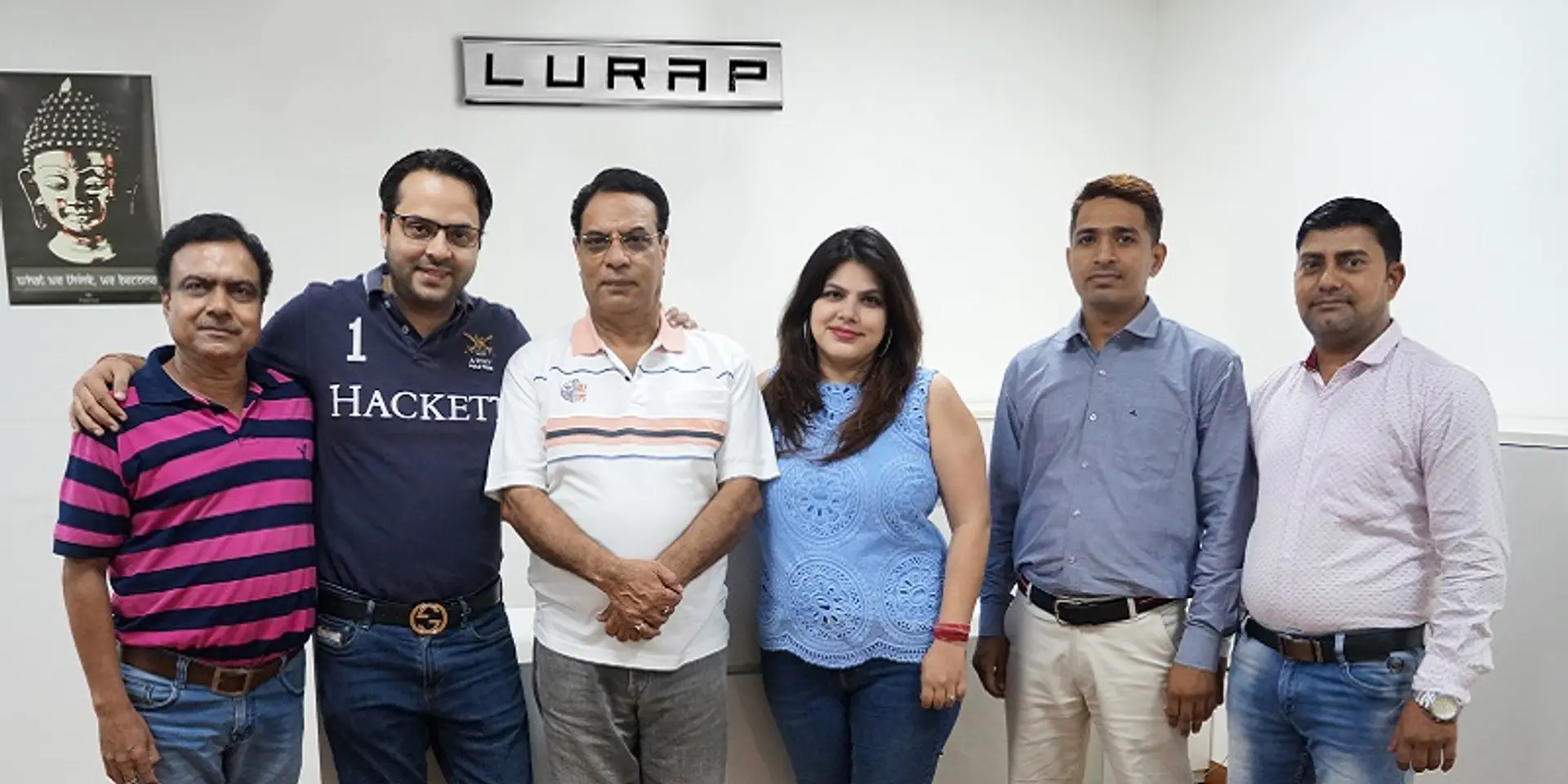Bootstrapped Lurap believes that every body type is different
The Gurgaon-based women’s clothing brand offers 21 sizes and styles in each garment category and claims to have a revenue of Rs 35 lakh.
Vidit Sehgal, while working for HDFC Bank, often wondered how clothing brands and companies could follow a cookie-cutter model. After all, there were people of different body types, who just didn’t get clothes that suit their style. This led him to have several conversations with his 67-year-old father Vinay Sehgal on the idea of catering to plus and petite sized people.
“We wanted to offer something different from the other me-too online fashion websites. We spoke to more than 100 plus size people to understand what they want, and how much they will be willing to spend, etc. But when we saw a few plus size women shopping for themselves in the men’s section, we decided to enter this market. Lots of people, vendors, manufacturers, business pandits ridiculed the idea initially as they believed satisfying a woman’s fashion need is impossible,” explains Vidit.

Working on the brand
The father-son duo founded Lurap – which stands for LoveURAPpearance – in January 2016 as a women’s clothing brand that offers 21 sizes and style in each garment category. They claim to offer more than 1,000 designs on their website for customers to choose and order from.
Initially, their biggest challenge was to find the right people, vendors, and even customers. Also, since Lurap deals in a product rather than a service, it is a capital-intensive business. It was also difficult to make plus and odd size people believe that there is a fashion brand exclusively for them.
However, since Vidit’s father Vinay came from a manufacturing background, it became easier to work on the processes of making the products and finding the vendors. The team roped in Smriti Khurana, a NIFT Delhi alumnus, Ali Mohammad, who has over 10 years of experience in various IT firms, Jitender, who has over 12 years of experience in garment design and production, and Hansraj, who has 25 years’ experience in R&D of new products.
Today, Lurap has managed to establish itself thanks to its offerings, product quality, and customer service. The team offers personalised services, understanding the customer’s needs and their body type before making the product.
Designing the products
The team designs the product as per the inputs of their customers, post which they make a sample product and get it shot to be displayed on the website. The team only stock fabric and no readymade products.
“We make fresh patterns for every order as per the size and style preference of the customer. We then make the product and ship it to the customer in 15 days. Further, our size and style variation is combined with height preferences. We believe no two bodies can be same. 2XL will fit differently on a 5’1 height person and a 5’5 height person. No other company is offering this,” explains Vidit.
The market and future
Currently bootstrapped, the team claims to have a revenue of Rs 35 lakh and growing at 25 percent month on month.
India Retailing pegs the custom-made clothing segment at a more modest $8 billion, or 20 percent of the market share. The other 80 percent belongs to the ready-to-wear category. However, even at a mere 20 percent, the multi-billion dollar industry is poised to grow at 5.5 percent per annum and significantly disrupts the trends of the fashion industry in India.
Several players like Urban tailor, fabstitch, designeroncall, stitchmyfabric, Bespoke Fashion Entrepreneurs and the Bombay Shirt Company and Tailormade, focus on customised clothing. Then there is Karyaah, which also is focused on women’s clothing.
“We are working on concepts such as Tailor at your Doorstep where a tailor will come to your place to take the measurements. We are looking to expand horizontally in women’s section by also offering customisable lingerie, swim wear. We then plan to enter menswear by the end of 2018 or early 2019,” explains Vidit.



